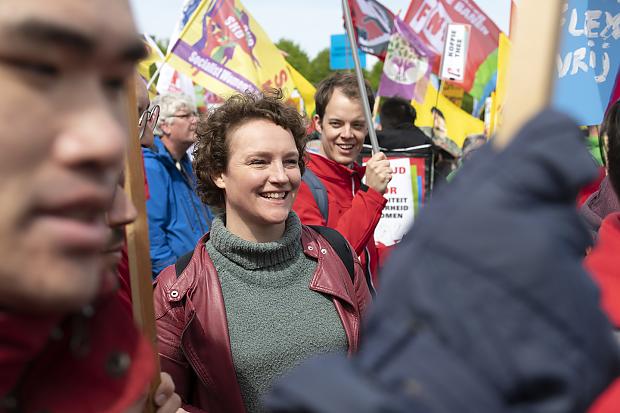Three questions about the negative interest rates
Three questions about the negative interest rates

Interest rates are at an historic low and even threaten to become negative. This is creating problems for almost all pension funds in the Netherlands, forcing them to reduce eight million pensions. Saving could begin to cost money, rather than producing gains in the form of interest payments. We put three questions on the issue of the low interest rates and the European Central Bank to SP Member of Parliament Renske Leijten.
What have the European Central Bank's policies to do with low interest rates?
The institution which concerns itself with all of the policies involving the euro is called the European Central Bank, the ECB. In recent years, in order to stimulate the economy, a great deal of money has been pumped into the European financial system. To date, some €2,600 billion, an astronomical sum. From November onwards, a further €20 billion will be added each month. In addition to this, they've recently lowered the interest rate, which means that multinationals and shareholders can make gigantic profits.
What are the results of this policy?
It's primarily the banks which profit from all this money being pumped into the financial system. Ordinary people don't benefit at all. The consequences of the ECB's lowering of interest rates are huge for people with savings or people looking for an affordable place to live. Incomes aren't going to increase and pensions are going to go down.
What in the SP's view should happen?
The SP is calling for negative interest on savings to be banned, as it is in Belgium, the UK and the US. Nothing stands in the way of the Netherlands doing this. In addition, the government must ensure that affordable new housing is built, and that the reduction of eight million pensions doesn't occur.
